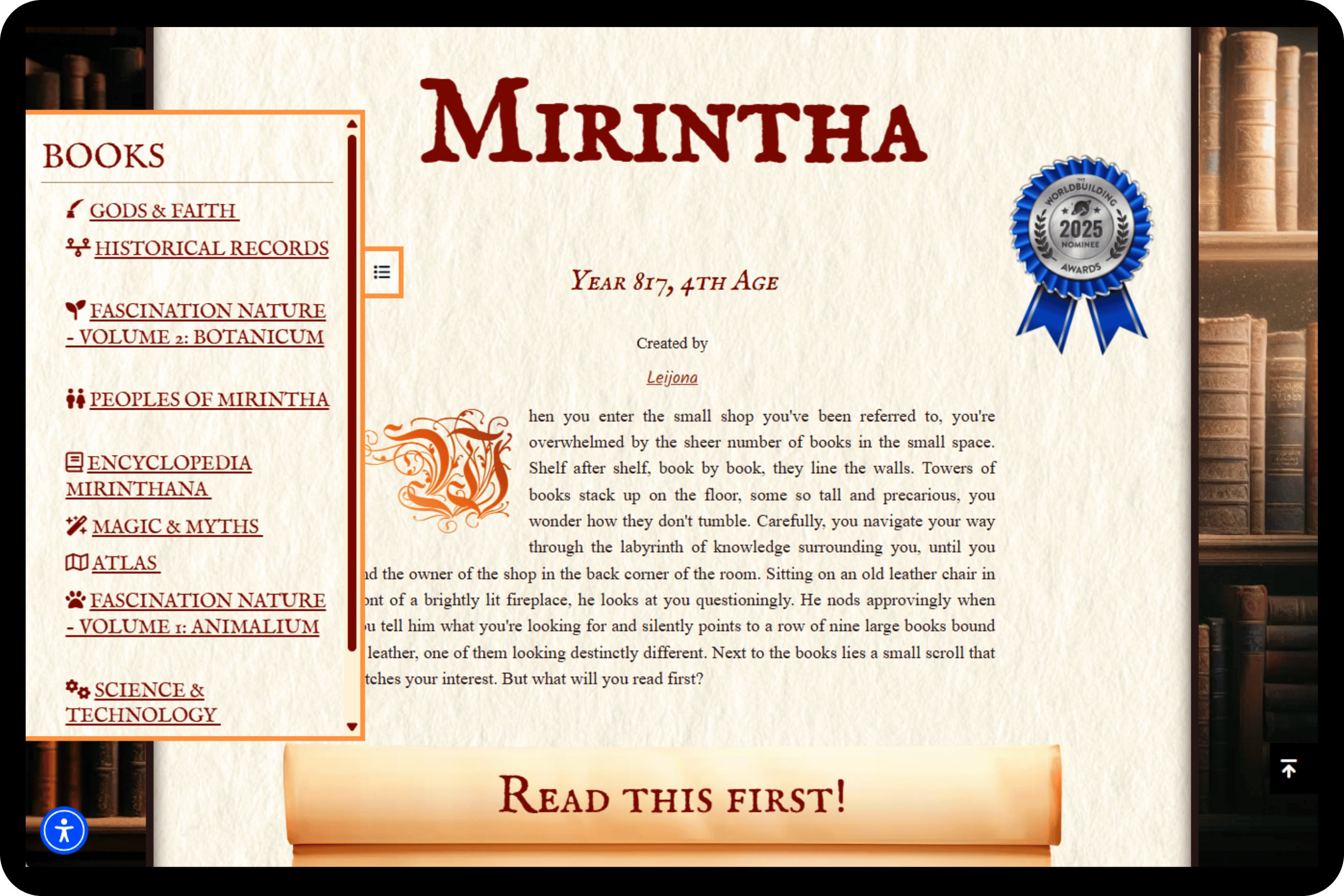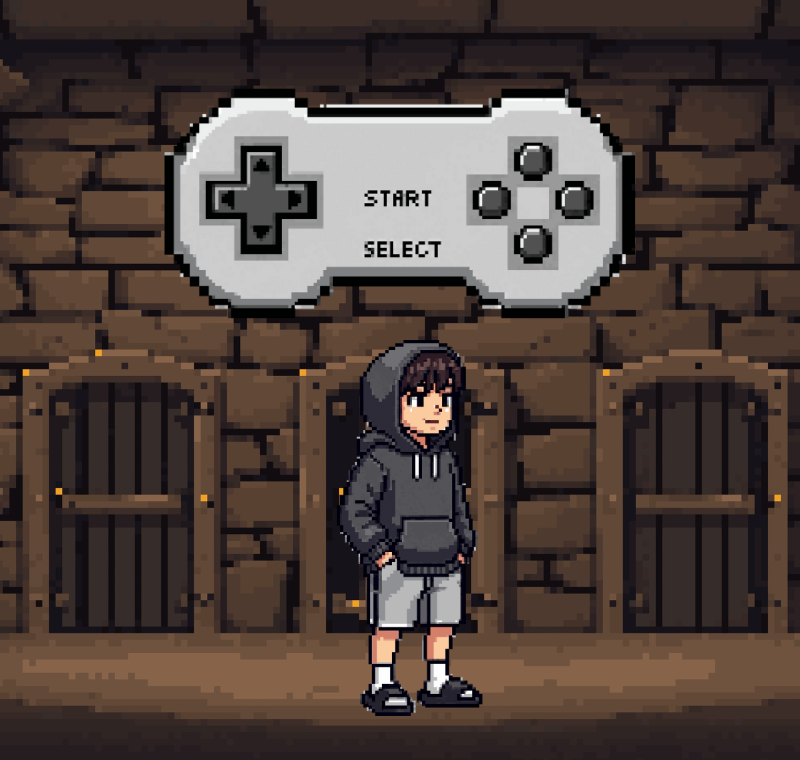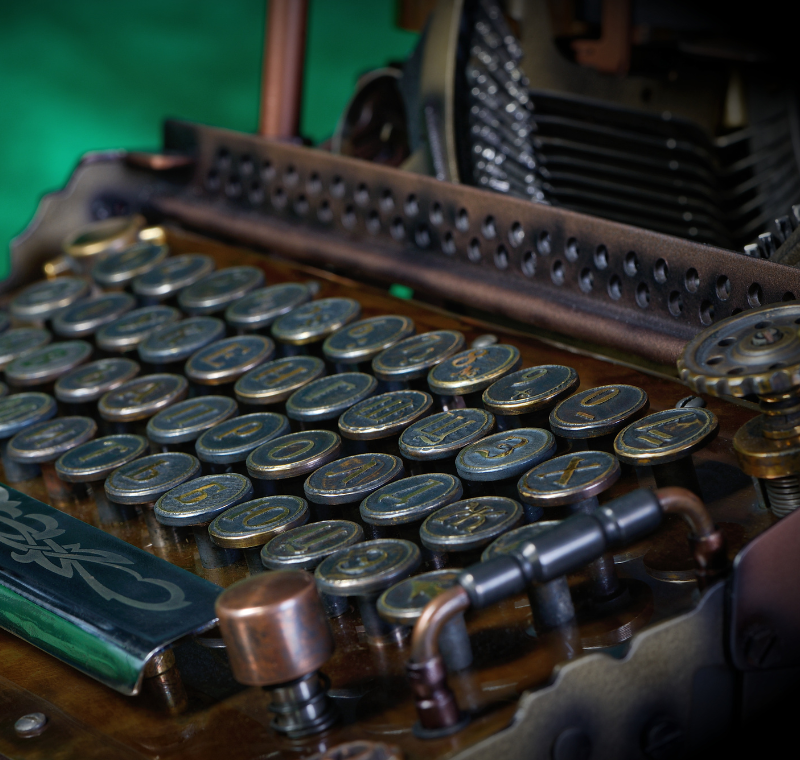Dungeons & Dragons is wildly popular, but it’s not the only option. While there are literally hundreds of tabletop RPGs available, only a small number are appropriate for:
A relatively new or inexperienced gamemaster
Who wants to run a full campaign (not a one shot)
In a homebrew setting of their own creation.
If that’s you, then we’ve done the work for you! We’ve narrowed it down to a handful of great choices. The first 6 options are "rules light" systems, which often emphasize roleplay over mechanics. The last 7 are more robust "crunchier" games that reward players who enjoy that more structured form of play. Both are great! We're just here to help you find the right system for your world, your gamemaster style, and your players.

What Are the Best Rules-Lite Tabletop RPGs?
These games are for you if you’re looking for a tabletop RPG that is fast to learn as the gamemaster, easy to teach your players, and robust enough to support a long-term campaign. That’s a tall order! But there are several games that strike a good balance.
We’ve ruled out all of the ‘one page RPGs’ typically listed as “simple roleplaying games.” While things like “Risus,” “Honey Heist,” or “Lasers and Feelings” can be fun party games, they’re not designed to take a party through a satisfying, multi-session campaign.
The following systems offer a good mix of simplicity in rules and robustness in gameplay, making them suitable for beginners looking for long-term campaign potential.
1. Dungeon World
If your players are looking for a classic dungeon-crawl experience, but with fewer rules and a more simplified play style, then this is a great choice.
Best-Fit Settings & Genres
Dungeon World is best suited for traditional fantasy settings reminiscent of classic Dungeons & Dragons. It thrives in worlds filled with magic, mythical creatures, epic quests, and heroic adventurers.
Basic Gameplay Mechanics
Dungeon World uses the Powered by the Apocalypse system, where players roll 2d6 to resolve actions. Results of 10+ are complete successes, 7-9 are partial successes with complications, and 6 or less results in a failure with consequences.
Moves, which are specific actions characters can take, drive the gameplay, and character development is guided by bonds and the fulfillment of character goals. The game emphasizes collaborative storytelling, with players and the GM working together to shape the narrative.
Character Creation Process
Players select a class, each of which has unique abilities and moves. Players then choose a race and assign values to their basic stats (Strength, Dexterity, Constitution, Intelligence, Wisdom, Charisma), typically using a set array or a point-buy system.
Each class provides specific starting moves and options for customization. Players define bonds with other characters, establishing relationships and backstory elements. Equipment choices and starting gear are influenced by class and character concept. The process is quick and emphasizes narrative and roleplay elements.
2. Fate
This is a solid choice if simplicity and flexibility are your top priorities. In addition to the “Core” edition, there are also “Accelerated” and “Condense” versions that streamline the rules even further.
Best-Fit Settings & Genres
Highly versatile and can be adapted to any genre or setting, from high fantasy and sci-fi to modern-day dramas and historical adventures. Its flexibility makes it ideal for narrative-driven campaigns where story and character development are paramount.
Basic Gameplay Mechanics
Fate points and aspects drive the narrative. Aspects are descriptive phrases that define important traits, skills, or story elements. Players roll four Fate dice (d6 with two sides each of +, -, and blank) and add skill ratings to determine success.
Fate points allow players to invoke aspects for bonuses or rerolls. The game emphasizes flexible storytelling and character-driven plots, adaptable to any setting or genre.
Character Creation Process
Players define a high concept and a trouble, which are aspects that encapsulate the character's core identity and primary challenge. Players then choose additional aspects to flesh out their background and personality.
Skills are selected and ranked in a pyramid structure, with more proficient skills having fewer slots. Stunts, which are special abilities or advantages, are chosen to provide mechanical benefits.
The game uses a collaborative process where players also define their connections to each other, creating a web of relationships and shared history that enriches the story.
3. Savage Worlds
This is a great pick if your players want classic action and adventure stories, and a fast-paced, cinematic play style.
Best-Fit Settings & Genres
Designed for pulp-action, high-adventure settings, making it ideal for genres like fantasy, westerns, superheroes, and sci-fi. Its fast-paced mechanics support dynamic and cinematic gameplay across various settings.
Basic Gameplay Mechanics
Characters have attributes and skills rated by different dice types (d4, d6, d8, etc.). Players roll these and aim to meet or exceed a target number (usually 4) to succeed. Wild Cards (important characters) get to roll a Wild Die (a d6) alongside their regular roll, taking the higher result.
The game features a fast-paced, action-oriented mechanic, with Bennies (tokens) that can be spent for rerolls or to soak damage. It’s designed for versatility and quick resolution of actions, suitable for various genres.
Character Creation Process
Players select a race and hindrances, which provide additional points for customizing attributes and skills. Players then allocate points to five primary attributes (Agility, Smarts, Spirit, Strength, Vigor) and choose skills, with higher dice representing greater proficiency.
Edges, which are special abilities or advantages, can be selected based on the character's concept and background. Equipment is chosen to suit the character's role and setting.
4. Cypher System
This is a good pick if you want to create a campaign in a non-traditional setting, like sci-fi or superheroes. The “cypher” (artifact) mechanic allows you to offer unique and powerful one-time use abilities without breaking the game.
Best-Fit Settings & Genres
Adaptable to virtually any genre, but it excels in settings that mix exploration, mystery, and adventure, such as sci-fi, fantasy, and modern supernatural. Its narrative focus is well-suited for creating immersive and story-rich campaigns.
Basic Gameplay Mechanics
Players roll a d20 against a target number determined by the GM, who sets the difficulty on a scale from 1 to 10. Players can use Effort to lower the difficulty, spending points from their character’s pools (Might, Speed, Intellect). The system is narrative-driven, emphasizing flexibility and simplicity, with the GM focusing on storytelling rather than rolling dice.
Character Creation Process
Players choose a type (warrior, adept, explorer, speaker), a descriptor (e.g., clever, strong), and a focus (e.g., carries a quiver, wields two weapons). These choices combine to form a phrase that describes the character’s core identity and abilities.
Each element provides specific benefits, abilities, and starting stats. Players allocate points to their Might, Speed, and Intellect pools and select equipment appropriate to their character.
5. Quest
This is a great pick if your players want to focus on character advancement and shared worldbuilding. The rules are presented in simple language that doesn’t presume you’re already familiar with roleplaying game conventions.
Best-Fit Settings & Genres
Best suited for fantasy settings where storytelling, character development, and cooperative play are central. Its simplicity and narrative focus make it perfect for creating immersive worlds with rich lore and engaging plots.
Basic Gameplay Mechanics
Employs a single d20 for action resolution, with players rolling against a target number determined by the difficulty of the action. The game focuses on narrative and cooperative play, with simple rules that encourage creativity and story development. Characters have roles with specific abilities and powers that grow as they advance. The gameplay is straightforward, emphasizing storytelling, character interaction, and collaborative world-building.
Character Creation Process
Players select a role such as Fighter, Wizard, Doctor, etc., each with a unique set of abilities and skills. Players choose their character's background, personality traits, and starting abilities from a list provided by their role.
There are no complex stats to manage; instead, the focus is on how the character fits into the story. Equipment is chosen based on the character’s role and the setting of the campaign.
6. Monster of the Week
This is the best option if you want to run a modern urban fantasy style game, with players taking on the role of archetypes from their favorite TV shows. If Vampire the Masquerade seems too complicated, or your players don’t want to be the “bad guys/monsters” this is a great choice.
Best-Fit Settings & Genres
Designed for modern supernatural and horror settings, inspired by TV shows like Buffy the Vampire Slayer, Supernatural, and The X-Files. It excels in episodic adventures involving monster hunting, mystery-solving, and urban fantasy elements.
Basic Gameplay Mechanics
Focuses on episodic monster-hunting adventures, using the same mechanics as Dungeon World (Powered by the Apocalypse). Players roll 2d6 for their actions, with results of 10+ being successes, 7-9 being partial successes with complications, and 6 or less resulting in failures with consequences. Characters have playbooks that define their roles and abilities, contributing to the narrative-driven gameplay. The system is designed to mimic the structure of supernatural TV shows, with an emphasis on investigation, action, and character development.
Character Creation Process
Players select a playbook, each representing a different archetype (e.g., the Chosen, the Expert, the Monstrous). Playbooks provide a template with specific moves, abilities, and options for customization. Players then assign ratings to their basic stats (Charm, Cool, Sharp, Tough, Weird) based on their playbook's guidelines.
They choose moves that define their character's special abilities and role in the team. Players also establish their character's history and relationships with other team members
Can I Build a Setting for Rules-Light RPGs on World Anvil?
All six of these systems are supported on World Anvil! You can choose any of them when creating a new Campaign. You can also add any stat blocks or character sheets from the Community Stat Block library. We'll include more details about creating your homebrew setting at the end of the article.
(And if you’re not looking for a game that prioritizes simplicity, but still want to look beyond the world’s most popular TTRPG to other games like Dungeons & Dragons, we’ve also got that covered in the next section).
For Further Reading
- Dungeon World Play Kit
- FATE Accelerated - Gamemaster Guide
- Savage Worlds Test Drive
- Cypher System Rules Primer
- Quest Rules
- Monster of the Week
What if I want a more crunchy D&D alternative? Or a TTRPG for a non-fantasy genre?
While many people enjoy rules-light games, the TTRPG landscape is vast, offering a multitude of alternatives that cater to different tastes and playstyles. Some of these games have extremely robust character customization, or are built for a non-fantasy genre (like Cyberpunk, Scifi, or Horror). If you're looking to expand your horizons beyond D&D, here are seven fantastic games to explore.
1. Pathfinder
Pathfinder by Paizo Publishing is one of the most popular alternatives to D&D. Known for its detailed rules and expansive world, Pathfinder offers a deep and rich gameplay experience. The game's extensive character customization options and comprehensive sourcebooks make it a favorite among veteran players who enjoy complex mechanics and intricate storytelling.
Dice Needed: A full set of polyhedral dice (d4, d6, d8, d10, d12, d20).
Genre and Settings: High fantasy; settings range from traditional medieval fantasy worlds to more exotic realms with complex societies and ancient magic.
You Might Like This If:
- You enjoy intricate character customization.
- You appreciate detailed rules and mechanics.
- You love expansive lore and world-building.
This Might Not Be for You If:
- You prefer simpler, more streamlined gameplay.
- You find complex rule systems overwhelming.
- You are not interested in spending time on character creation and optimization.
2. Tales of the Valiant
Tales of the Valiant is a modern TTRPG that combines classic fantasy elements with innovative mechanics. This game emphasizes narrative-driven gameplay and character development, allowing players to create compelling stories and memorable adventures. With its streamlined rules and focus on story over mechanics, Tales of the Valiant is perfect for those who prefer a more narrative-focused experience.
Dice Needed: Primarily uses d6, but a full set of polyhedral dice can be useful.
Genre and Settings: Fantasy; settings emphasize heroism, epic quests, and character-driven stories.
You Might Like This If:
- You prefer narrative-driven gameplay.
- You enjoy character development and storytelling.
- You appreciate streamlined rules that prioritize story over mechanics.
This Might Not Be for You If:
- You prefer games with more tactical combat.
- You are looking for extensive rules and detailed mechanics.
- You are not interested in narrative-focused gameplay.
3. Shadowrun
For those interested in a cyberpunk setting, Shadowrun offers a unique blend of fantasy and science fiction. Set in a dystopian future where magic and technology coexist, Shadowrun allows players to take on roles such as street samurai, hackers, and magic users. Its rich lore and diverse character options provide endless possibilities for thrilling and gritty adventures.
Dice Needed: Multiple six-sided dice (d6).
Genre and Settings: Cyberpunk; dystopian future where magic and technology coexist.
You Might Like This If:
- You enjoy gritty, urban settings with a blend of magic and tech.
- You like playing hackers, street samurai, and magic users.
- You appreciate complex, interconnected lore.
This Might Not Be for You If:
- You prefer traditional fantasy settings.
- You find extensive rulebooks and mechanics daunting.
- You are not interested in cyberpunk or dystopian themes.
4. Call of Cthulhu
Call of Cthulhu is a horror-themed TTRPG based on the works of H.P. Lovecraft. Players investigate supernatural mysteries and face eldritch horrors in a game where survival and sanity are never guaranteed. The game's emphasis on atmosphere, suspense, and investigative gameplay makes it a standout choice for fans of horror and mystery.
Dice Needed: A full set of polyhedral dice, primarily d100 (percentile dice).
Genre and Settings: Horror; 1920s America, modern-day settings, or other periods where players investigate supernatural mysteries.
You Might Like This If:
- You enjoy horror and suspense.
- You like investigative gameplay and solving mysteries.
- You appreciate atmospheric storytelling and psychological tension.
This Might Not Be for You If:
- You prefer combat-heavy games.
- You are uncomfortable with horror.
- You dislike games where character survival is uncertain.
5. Blades in the Dark
Blades in the Dark is a game of crime and intrigue set in a dark, industrial fantasy city. Players take on the roles of members of a criminal gang, engaging in heists, turf wars, and other illicit activities. The game’s unique mechanics, such as the stress system and flashbacks, allow for dynamic and cinematic storytelling.
Dice Needed: Six-sided dice (d6).
Genre and Settings: Dark fantasy; industrial, Victorian-esque city teeming with criminal enterprises and supernatural elements.
You Might Like This If:
- You enjoy playing morally ambiguous characters.
- You appreciate mechanics that support dynamic and cinematic storytelling.
- You like the idea of leading a criminal gang and engaging in heists.
This Might Not Be for You If:
- You prefer heroic or straightforward good vs. evil narratives.
- You dislike complex social interactions and moral ambiguity.
- You are not interested in crime or underworld settings.
6. Vampire: The Masquerade
Vampire: The Masquerade is part of the World of Darkness series and focuses on political intrigue and personal horror. Players assume the roles of vampires navigating the complex social hierarchies of the undead. The game’s deep lore, moral dilemmas, and emphasis on character-driven stories make it a compelling choice for mature audiences.
Dice Needed: Ten-sided dice (d10).
Genre and Settings: Gothic horror; urban settings where vampires navigate complex social hierarchies and personal dilemmas.
You Might Like This If:
- You enjoy dark, mature themes and moral complexity.
- You like character-driven stories and political intrigue.
- You appreciate deep lore and world-building.
This Might Not Be for You If:
- You are uncomfortable with mature themes and moral ambiguity.
- You prefer action-focused or combat-heavy gameplay.
- You dislike games with a heavy emphasis on roleplay.
7. Starfinder
From the creators of Pathfinder, Starfinder takes the adventure to the stars. This science-fantasy TTRPG combines futuristic technology with magical elements, offering a universe full of alien species, starships, and interstellar adventures. Starfinder's blend of genres provides a fresh and exciting experience for players looking to explore new worlds.
Dice Needed: A full set of polyhedral dice (d4, d6, d8, d10, d12, d20).
Genre and Settings: Science fantasy; futuristic settings combining advanced technology with magical elements.
You Might Like This If:
- You enjoy exploring new and diverse worlds.
- You like a blend of science fiction and fantasy.
- You appreciate detailed character options and starship combat.
This Might Not Be for You If:
- You prefer traditional fantasy settings.
- You find space and science fiction themes unappealing.
- You are not interested in managing starships and futuristic technology.
Creating a Homebrew Setting on World Anvil
Creating your own world for any of these games can be a deeply rewarding experience. World Anvil is an excellent platform for building and managing your homebrew settings. Here's a quick guide to get you started:
- Register for a Free Account: Visit World Anvil and sign up for a free account. This will give you access to essential tools for creating and organizing your world.
- Create Your World: Once registered, start a new project and give your world a name. You can then begin detailing the various aspects of your setting, such as geography, history, and cultures.
- Use Templates: World Anvil offers a variety of templates to help you flesh out characters, locations, items, and more. These templates make it easy to ensure that your world is consistent and well-documented.
- Map Your World: Utilize World Anvil’s mapping tools to create detailed maps of your setting. You can mark important locations, track the movements of characters, and provide visual context for your players.
- Invite Players: Share your world with your gaming group by inviting them to view your project. They can read up on the lore, familiarize themselves with the setting, and contribute to the world-building process.
Ready to create your own epic world? Register for a free account on World Anvil today and start bringing your imagination to life!
For Further Reading
- Pathfinder Quick Start Guide
- Tales of the Valiant Starter Kit
- Shadowrun Beginner Box
- Call of Cthulhu Starter Set
- Blades in the Dark Basics
- Vampire: The Masquerade Quickstart
- Starfinder Rules: Getting Started
These TTRPGs offer a wealth of new experiences, whether you're a seasoned player looking for a fresh challenge or a newcomer eager to explore different worlds. Dive in and discover the endless possibilities that await!
Become a World
Anvil member

.png)








